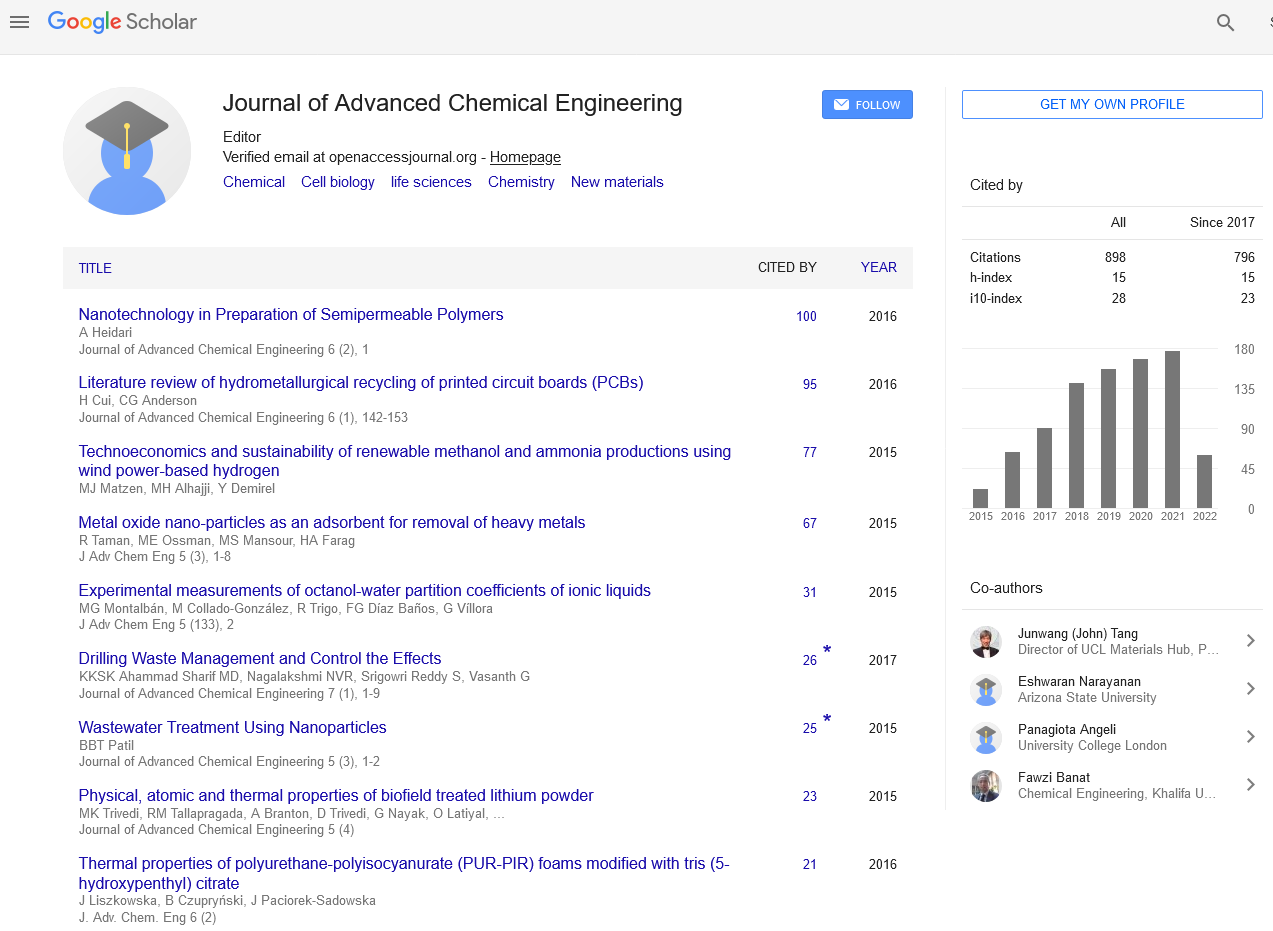Indexed In
- Open J Gate
- Genamics JournalSeek
- Smithers Rapra
- RefSeek
- Directory of Research Journal Indexing (DRJI)
- Hamdard University
- EBSCO A-Z
- OCLC- WorldCat
- Scholarsteer
- Publons
- Geneva Foundation for Medical Education and Research
- Google Scholar
Useful Links
Share This Page
Journal Flyer

Open Access Journals
- Agri and Aquaculture
- Biochemistry
- Bioinformatics & Systems Biology
- Business & Management
- Chemistry
- Clinical Sciences
- Engineering
- Food & Nutrition
- General Science
- Genetics & Molecular Biology
- Immunology & Microbiology
- Medical Sciences
- Neuroscience & Psychology
- Nursing & Health Care
- Pharmaceutical Sciences
Laboratory investigation of mineral scale deposition kinetics by adopting a plug-flow tube reactor
6th Asia Pacific Congress on Chemical and Biochemical Engineering
September 17-18, 2018 Hong Kong
Ping Zhang
University of Macau, Macau
Scientific Tracks Abstracts: J Adv Chem Eng
Abstract:
Mineral scale (scale) is the sparingly soluble inorganic deposit from aqueous solution. Scale deposition can pose a serious problem to the safe and economical operations of various industrial facilities, costing hundreds of billions of dollars of damage globally per year. Scale deposition can lead to equipment blockage with a narrowed tubing inner diameter and a reduced flow rate. In this presentation, laboratory investigation of mineral scale deposition kinetics was evaluated by use of a plug-flow type tube reactor. Compared with the conventional approach, the tube reactor has the advantage to maintain a constant solution pH, surface area and a controlled saturation index and hydraulic condition during the deposition study. Two scenarios of scale solid deposition were considered in this study, including deposition of scale on clean surfaces and also deposition of scale on a surface pre-coated with scale solid. The results show that the overall scale deposition process can be divided into multiple stages with different deposition kinetics and different solid morphologies. It is obvious that experimental conditions, such as solution chemistry, flow rate, temperature and saturation index, can have a considerable impact on scale deposition kinetics. These results provide an in-depth understanding of the process involving scale deposition onto the surface of a pipe material or a conduit. This tube reactor apparatus expands our capability of investigating mineral scale deposition kinetics and the influences of various experimental factors on scale deposition kinetics.
Biography :
Ping Zhang has been an Assistant Professor in Faculty of Science and Technology, University of Macau since 2017. He has received his BS degree in Environmental Science from Nankai University, Tianjin, China in 2006. He has obtained his MS and PhD degrees both in Civil and Environmental Engineering from Rice University in Houston, Texas, in 2008 and 2011, respectively. He has also obtained his Professional Engineer (PE) license in the dual disciplines of Chemical/Environmental Engineering in the State of Texas in 2016. He is also a Chartered Chemist (CChem) of Royal Society of Chemistry of the UK since 2017. His research interests are solid precipitation and deposition, oilfield mineral scale control and environmental aquatic chemistry.
E-mail: pzhang@umac.mo


